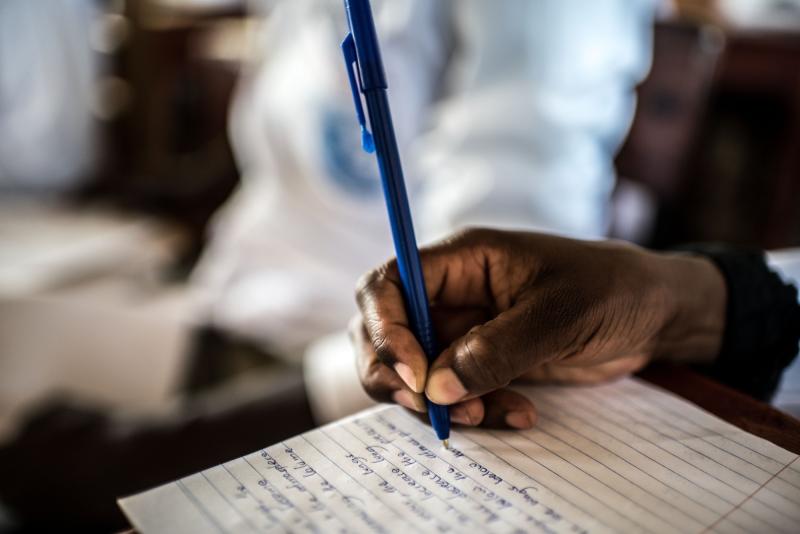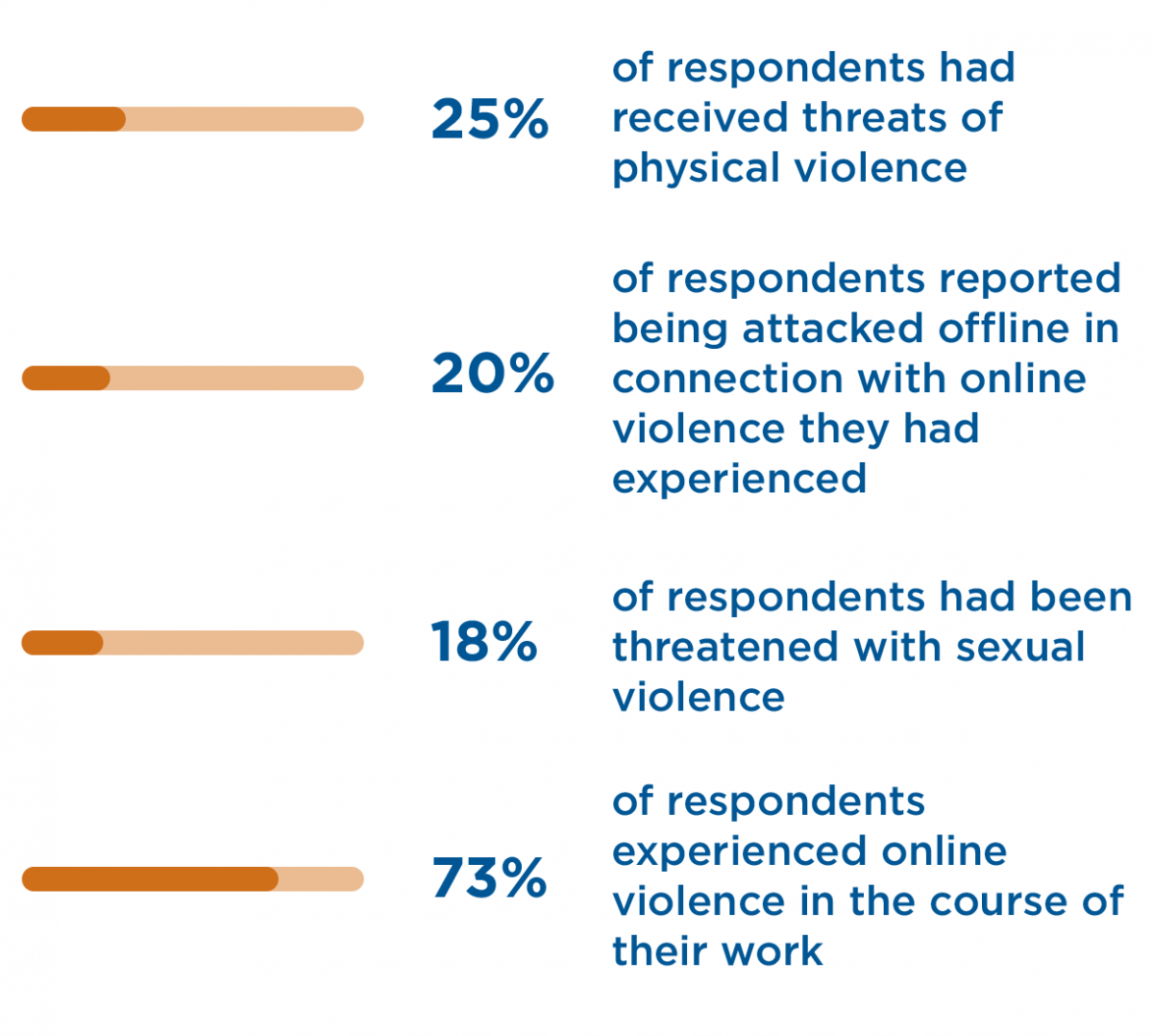Where We Work
See our interactive map


Photo by Tommy Trenchard for IntraHealth International.
Why it matters for global health and what must be done to stop it.
When journalists began reporting on the high maternal mortality rates among Black mothers in the US, it brought greater public awareness and pushed public health practitioners and health workers to better address these inequities. It’s just one example of how journalism plays a critical role in society and in health care.
Since the beginning of the COVID-19 pandemic, we’ve relied on journalists for up-to-the-minute and clear information on how and where the virus is spreading, which vaccines are available, and where to go to get them.
Sadly, journalists—specifically women—are fighting a concurrent epidemic of their own: online violence and misogyny. And it affects COVID-19 and other health reporting by attempting to control, silence, and discredit our sources of information about the pandemic and other important global health information.Women journalists in more than 120 countries have reported being attacked online at some point in many different forms , including:
Revenge pornography: The non-consensual creation, distribution, or threat to distribute sexual or nude media, including videos and photographs, that are often distributed by a malicious ex-partner.
Doxing: When one or several people seek out personal identifying information or private information about another person and then distribute it through mass media channels without their consent.
Deepfakes: Videos that switch one person’s face onto someone else’s face by using machine-learning techniques.
Gendertrolling: A form of harassment that entails sending or submitting provocative emails or social media posts with an intention to anger or upset the targeted victim, often involving rape and death threats targeted at women.
Cyberstalking: Similar to offline stalking, but through electronic means.
Cyber sextortion: The threat to expose sexual images to coerce victims to engage in sexual activity, provide additional sexual images, or agree to other demands of the perpetrator.
To truly understand the prevalence and impacts of this gender equity issue, UNESCO administered a global survey to women journalists that examined online violence. This study found that: 
As a result of online violence, 30% of respondents reported self-censoring themselves online and 26% reported wanting to quit social media and journalism altogether.
Online violence that targets women has significant physical and psychological impacts. A study by Amnesty International found that across all countries surveyed, 55% of women who were targets of online violence experienced anxiety, panic attacks, or stress. This study also found that online misogyny contributed to difficulty sleeping and concentrating among victims of online harassment. So not only does this harassment affect global health reporting, it affects the health and well-being of the global health reporters themselves.
Online hate, often rooted in misogyny, is intertwined with disinformation campaigns that discredit women journalists and their work. Misogyny is defined as the aversion to, hatred of, or prejudice against women. For example, Liz Essley Whyte investigated and reported on the conspiracy theories and disinformation campaigns surrounding COVID-19 vaccinations. She then received emails, social media posts, and voicemails with abusive language. The goal of these perpetrators is to silence women and force them out of online spaces.
Since 20% of women journalists who experience online violence respond to this abuse by withdrawing from all online interaction, these perpetrators are getting exactly what they want—and the flow of information about important issues such as public health is blocked.
You can read more about UNESCO’s global survey here.
Get the latest updates from the blog and eNews




